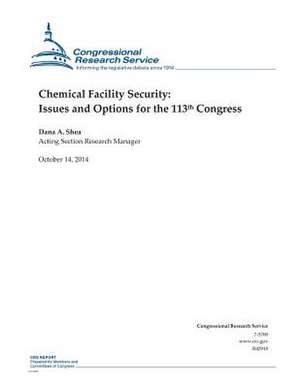Chemical Facility Security
Autor Congressional Research Serviceen Limba Engleză Paperback
| Toate formatele și edițiile | Preț | Express |
|---|---|---|
| Paperback (3) | 125.11 lei 3-5 săpt. | |
| CREATESPACE – | 125.11 lei 3-5 săpt. | |
| CREATESPACE – | 125.11 lei 3-5 săpt. | |
| CREATESPACE – | 125.11 lei 3-5 săpt. |
Preț: 125.11 lei
Nou
Puncte Express: 188
Preț estimativ în valută:
23.94€ • 26.09$ • 20.17£
23.94€ • 26.09$ • 20.17£
Carte disponibilă
Livrare economică 02-16 aprilie
Preluare comenzi: 021 569.72.76
Specificații
ISBN-13: 9781502914897
ISBN-10: 1502914891
Pagini: 54
Dimensiuni: 216 x 279 x 3 mm
Greutate: 0.15 kg
Editura: CREATESPACE
ISBN-10: 1502914891
Pagini: 54
Dimensiuni: 216 x 279 x 3 mm
Greutate: 0.15 kg
Editura: CREATESPACE
